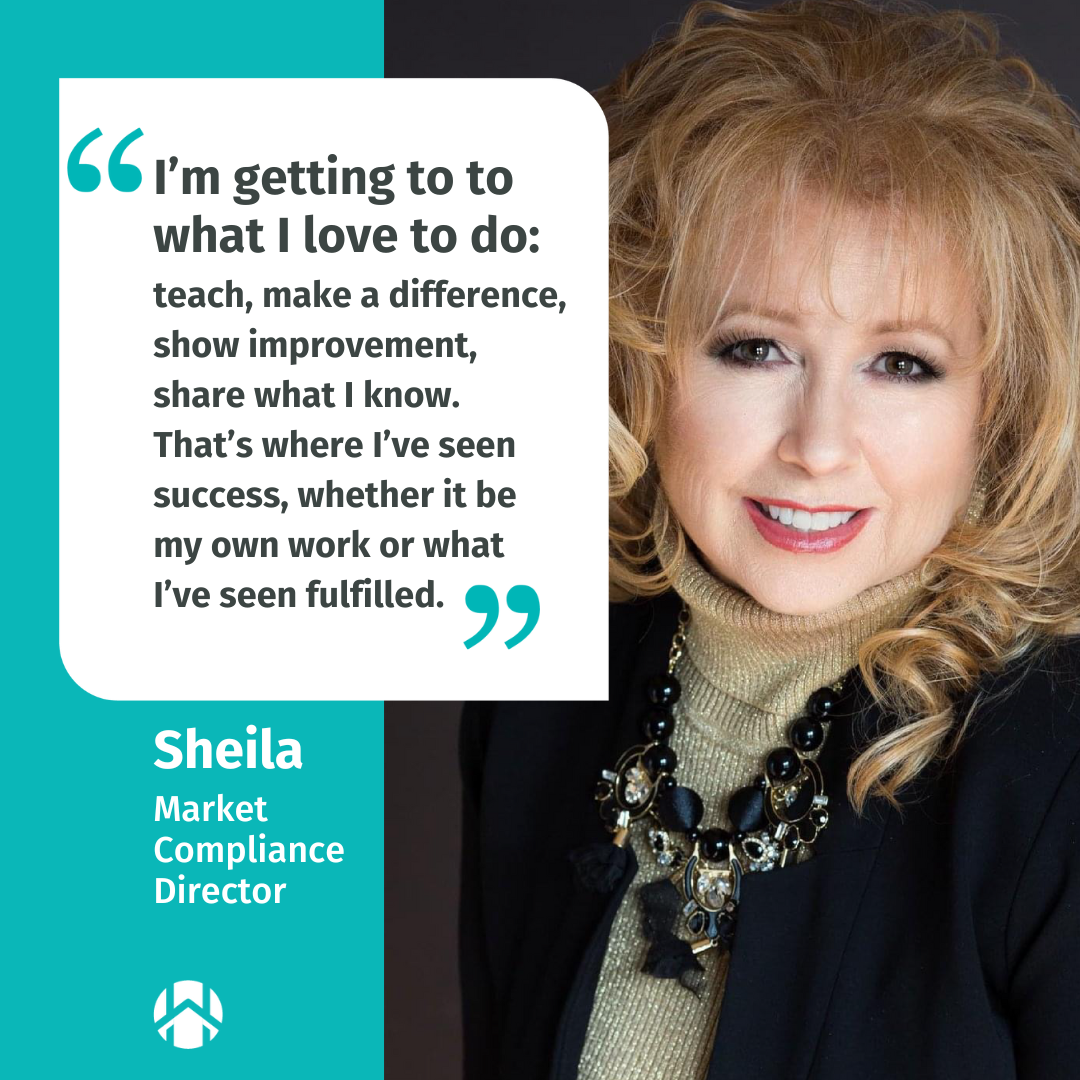Cultivating Help at Home’s Culture of Quality and Safety; A Rewarding Career for Sheila

When Sheila began her career as a registered nurse, she vowed that no matter what her career path, she would always stay close to the frontlines of nursing to make a difference for her patients.
Over the years, her career has taken her many places – including starting her own home care agency, working as a home care compliance consultant and as a federal surveyor. A few years ago, she became a market compliance director for Help at Home and recently earned the CHC Certification in Health Care Compliance.
VP of Clinical Quality Angie Wolff shares, “The CHC certification drives our bench strength, and offers focused training that is tailored to our business model. We look forward to the positive impact Sheila will have on our organization’s knowledge base by utilizing this certification to support other leaders and their compliance efforts.”
Sheila feels like she’s making a real difference in her current role training market leaders on important quality and compliance issues. “I like to teach,” she said. “Being a consultant, that’s what you do, teach people and help them make a difference.”
The role of the compliance department is increasingly more and more about management and training of quality of care and initiatives. For example, training programs like “Compliance Alliance” helps quality and compliance leaders at the branches understand and socialize the regulations throughout their teams. Sheila said this is especially important for caregivers who come from other industries and may not have home care backgrounds.
“There are strict rules and regulations that we have to meet in order to keep our licenses and maintain a quality reputation,” she said.
It depends on the state and federal regulations for home care programs. There may need to be a different approach to helping clients. For example, some regulations prohibit caregivers from driving clients to pick up their medications. That can be especially confusing, which is why training is so important. The compliance team implements a multi-pronged approach – from providing training and education, conducting audits and quality surveys and investigating allegations – as well as working to implement corrective actions, if necessary.
